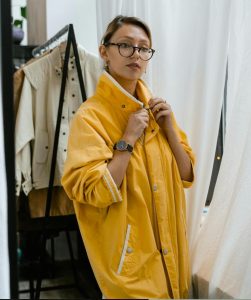Losing weight is often framed as a physical transformation. But as many discover, the deeper work is psychological. The story of what happens in your head doesn’t always match what happens on the scale. Especially now, with medications such as Ozempic entering the conversation, it’s even more important to understand the emotional dynamics underneath. Explore some of my Indianapolis Image Consultant guidance for navigating this process.
Indianapolis Image Consultant Advice
Ozempic and other GLP-1 medications originally developed for type 2 diabetes are increasingly used off-label for weight loss. People often think this medication will be the magic fix for their self-image issues and weight-related distress. But clinicians warn this may not be the case:
- “I’m not sure Ozempic will bring you peace with your body… patients believe their true selves are smaller than the bodies they actually inhabit.” WQLN+1
- Rapid changes in body size can trigger new image issues: loose skin, an “empty” look, a face that remains fuller while the body thins, or new anxieties about identity. One podcast noted that fast weight loss often comes with a significant drop in lean muscle mass. Meryl Brandwein
So while medications can assist physiologically by reducing appetite and altering gastrointestinal signals, they cannot automatically fix internalized beliefs about beauty, self-worth, or belonging.
As we lose weight, we often ponder the following questions:
- Will I feel better?
- Will my worth change?
- Will I like what I see in the mirror?
But when the body changes, the mind must catch up. And that doesn’t happen automatically.
A Holistic Approach to Change
Weight-loss interventions—whether diet, exercise, medication, or surgery—are tools, not cures for self-esteem or self-image. Here are some guiding questions if you’re on or considering a weight-loss journey:
- Why am I losing weight? Is it health? Self-care? Social expectation?
- What do I believe about my body now — and what do I want to believe?
- As I lose weight, how will I address new body-image realities (loose skin, changing proportions, muscle loss) and integrate them into a positive self-view?
- If using a medication like Ozempic, how does that fit into the larger context of my values, emotions, identity, and long-term life?
- How can I build non-appearance-based self-worth (skills, relationships, kindness, impact) so that the number on the scale is not the barometer of value?
Work with Indianapolis Image Consultant Beth Divine
 While I am not a therapist, I can certainly see the results of weight loss! Your wardrobe may be very confusing or even very minimal. I can help you navigate who you are not and help you envision what your style can look like in the future! I am finding many of my new clients now come to me with huge wardrobe needs. Either their current wardrobe is too large, or they are in transition and don’t have any in-between clothes. Should they alter what they have? Is it worth the expense? Should they buy a few new clothes to tide them over?
While I am not a therapist, I can certainly see the results of weight loss! Your wardrobe may be very confusing or even very minimal. I can help you navigate who you are not and help you envision what your style can look like in the future! I am finding many of my new clients now come to me with huge wardrobe needs. Either their current wardrobe is too large, or they are in transition and don’t have any in-between clothes. Should they alter what they have? Is it worth the expense? Should they buy a few new clothes to tide them over?
My next blog will go into these questions and more in depth! Reach out to me at beth@bethdivinestyle.com for style help or Indianapolis Image Consultant advice!
Keep it sassy, Indy.
Beth Divine, MA, AICI-CIC, Personal Image Consultant
Photo by MART PRODUCTION




